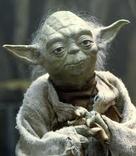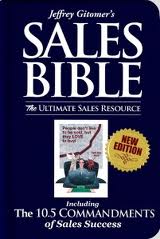|
It seems to me like people who are considerably older than me almost always fall into one of two categories: being mean or being very funny. No matter what though, the key is that they can get away with anything (like kids). Why is that?
By "mean," I don't mean they're always unpleasant. It's just that they're more often than not grumpy or not too sociable. Why is that? By "funny," I don't mean they're always comedic. It's just that they have stories that are genuinely humorous and observant of something common and quirky among us all. In both categories, older people can also be "weird." By that, I mean somehow exotic in their interests or behaviors and maneurisms. Maybe that's from spending a lifetime "finding themselves" and figuring out how they want to be. Or maybe not. Sometimes, older people are very wise. Wisdom is often some combination of all of the above: seriousness and a sense of humor, backed by years of stories and experiences. I'm most impressed when I meet someone who is really fully mentally present and just sharp as anyone half their age. That is truly the most remarkable and special, and I wonder why. What's their secret? How can I grow up and still be quick and "with it" (I like seeing older people with iPads and knowing more about the latest bands than I do)? Why aren't more people like that naturally? Seeing people like this always inspires me (even though it also creates quite a cognitive dissonance).
0 Comments
Anke and Carole spoke about entrepreneurship and their own personal stories in my class by Mayor Riordan, and it was neat to hear two different perspectives on the entrepreneurial process. Here are their quick bios: Carole Ference is Executive Vice President, Business Development of Nielsen Advertiser Solutions, Founder of IAG Research, and Former Publisher of House Beautiful, Connoisseur, and Town & Country. Anke Audenaert is a founder and head of product and research of JumpTime, a company that focuses on building traffic optimization software for digital publishers. The Culver City based company is 4 years old. Earlier, Anke worked at Yahoo!, as head of market research and network optimization. She is also an Adjunct Professor of Marketing at the UCLA Anderson School of Management and teaches web marketing and analytics in the FEMBA program. Ideation Anke started her talk by speaking about her "aha moment." She started at Unilever and then moved to Yahoo as Head of Research. Her focus was on finding ways to move homepage visitors to the most profitable parts of the site. She realized there was a need for this across companies and decided to leave but first partnered up with someone. She had the algorithms, and she partnered up with Michelle DiLorenzo for Business Development. Together they built JumpTime, a traffic optimization software company. They put a price tag on all content pieces and then build software to move traffic across them. They have 12 employees and have several large clients already. Carole originally started in magazine publishing and moved to TicketMaster here in California. She wanted to change her lifestyle, and so she networked and met people who became her partners. The business idea came from someone else: TV advertising effectiveness measurement. Her company's focus was on measuring viewers' recall and liking of ads. They wrote a small business plan and pitch and went out to GM and Kraft and got lots of feedback from them, tweaking the product until it was in a state that could work. Next Steps Some of the initial steps mentioned were writing a business plan and marketing plan. Anke also started consulting for clients and developed her model further. She analyzed data with her husband Lustig, a famous asset pricing professor, and got together with her future CTO Andres Rodriguez from Stanford Research Institute. Together they set their mission, including lofty goals for the next 5 years. She urged us to write business plans for ourselves and our business, not for getting money. Key points to focus on are goals for product, including specific milestones, and goals for sales (top 50 clients, big companies, etc.). She started a huge Excel sheet to track all this, helping her get her Series A funding. Funding Carole spoke a bit about friends and family funding for her company, IAG Research. She explained that your plan will change considerably from investor feedback. Personal Qualities of Entrepreneurs They must embrace chaos and benign neglect (letting people run with ideas), not being afraid to make mistakes. They must embrace their competition, like Yahoo switching its search engine backends. They must really articulate their product's benefits when they dealing with competitors. They must not listen to people who say something can't be done and that there are competitors. Current Landscape Both ladies said now was a good time for entrepreneurs with "money flowing." In 2010, VC rose to $22 billion, and in 2011, 76% more is expected. The hottest areas they mentioned were the following: Consumer, Mobile, Social, and Health. Various incubator programs they spoke highly of were the Start-Up America Partnership, YC, and IdeaLab. I just completed my second Jeffrey Gitomer book: his Sales Bible. I can definitely see his style of numbered lists, with an extra "0.5" at the end at all times, and his intense energy and enthusiasm for sales philosophy came through strong in the audiobook. At times, the text seemed to lack structure and direction, and I felt like there was a lot of repetition. However, buried in this tome are a lot of great nuggets and sample scripts, clearly developed after a lot of field testing.
It's interesting how many of the sales techniques presented link closely with the principles of psychology from some of the other books I've recently been reading. Below are my main notes and lessons from each section. Think: the sale is in your head
Customer management
Meetings and questions
Presentations
Handling objections
Persistence
|
Archives
June 2024
Categories
All
Subscribe |



 RSS Feed
RSS Feed
